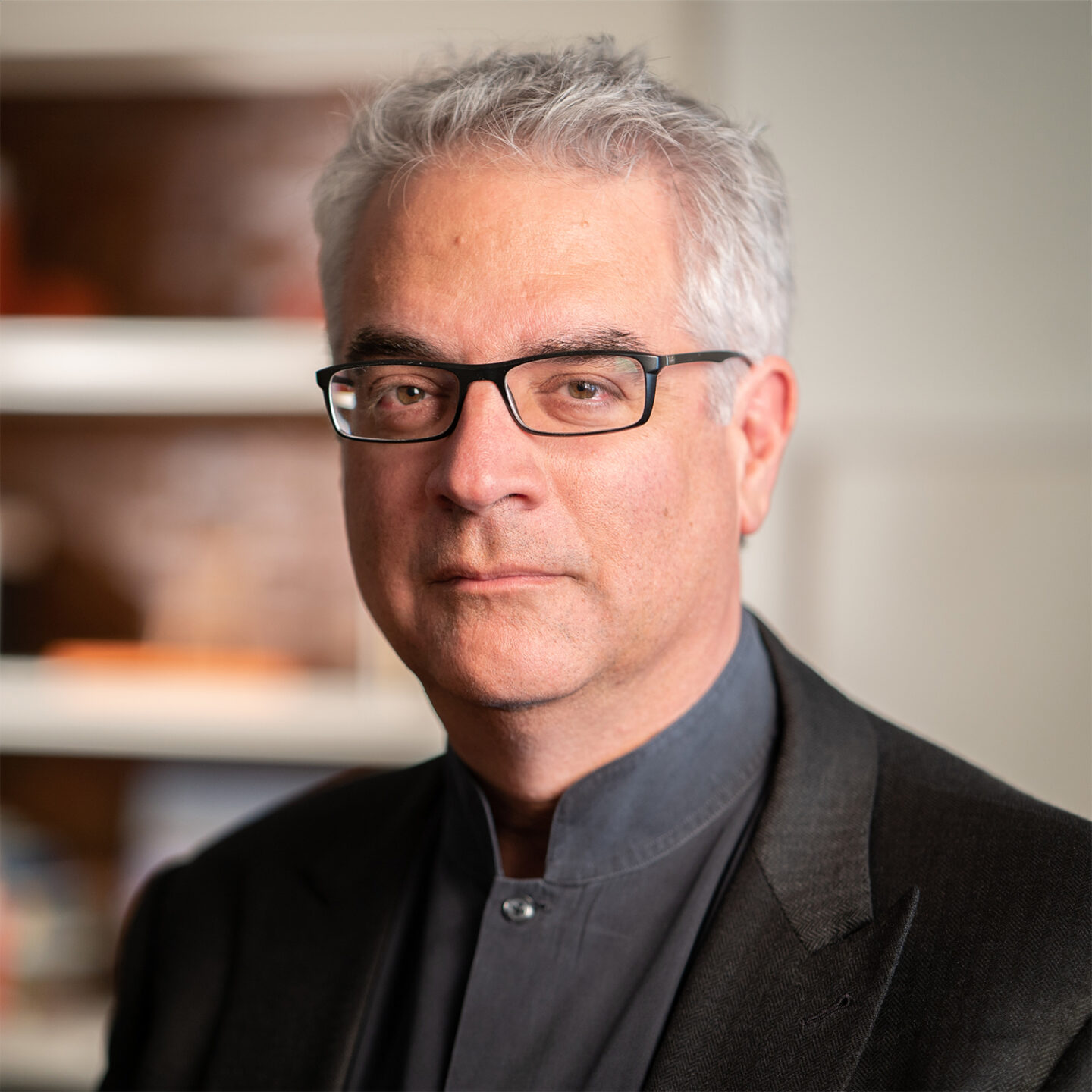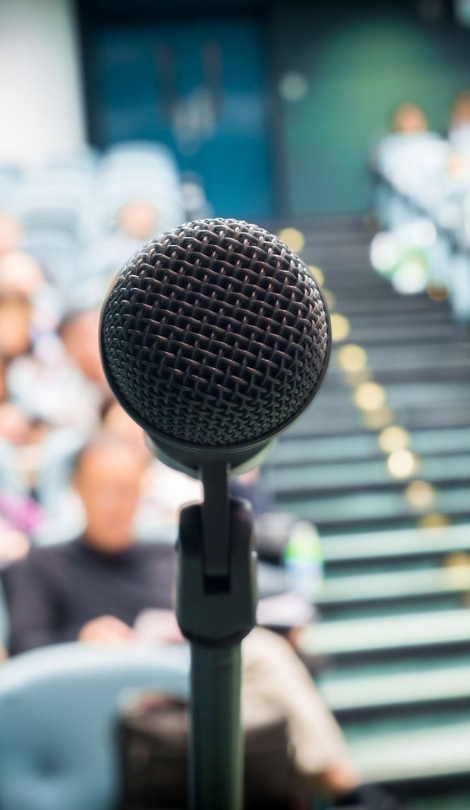Nicholas Christakis on Colleges’ Crisis and Opportunity
November 7, 2025
Over two centuries, American higher education has periodically remade itself. Time to do it again. R. Howard Bloch is Sterling professor of French and humanities…

WWSG Exclusive
Influential and Renowned Social Scientist; Director, Human Nature Lab; Co-Director, Yale Institute for Network Science; Sterling Professor of Social and Natural Science, Yale University
Dr. Nicholas Christakis is a world-renowned expert on social networks, human behavior, and public health, making him an exceptional keynote speaker for any conference. As a Sterling Professor at Yale and Director of the Human Nature Lab, his groundbreaking research explores how social contagion, AI, and evolutionary biology shape society. A bestselling author and one of Time magazine’s 100 most influential people, Christakis brings a unique, data-driven perspective on innovation, resilience, and the future of human interaction—offering audiences both deep insights and actionable takeaways.
Dr. Nicholas Christakis explores how AI doesn’t just shape human-machine interactions but profoundly impacts human-human relationships. As a pioneer in studying “hybrid systems” of humans and AI, he reveals how AI can enhance—or hinder—cooperation, communication, and innovation within groups. In this compelling talk, Dr. Christakis unpacks his groundbreaking research on AI’s influence on social behavior, offering insights into designing AI for a future that uplifts society rather than disrupts it.
In this captivating keynote, Dr. Nicholas Christakis explores AI’s deep impact beyond efficiency and exploring how it is shaping social norms, ethics, and human behavior. As AI takes over daily tasks like driving, how does it alter judgment and decision-making? He warns that reliance on AI can erode reciprocity and shift societal behaviors, with lasting consequences when AI is removed.
A leading expert on human networks, Christakis reveals AI’s role as a social catalyst—both its risks and benefits. His engaging talks equip leaders with insights to navigate AI’s societal impact, helping businesses anticipate future trends and ethical challenges.
Dr. Nicholas Christakis explores how social networks shape human behavior and how strategic interventions can drive positive change. By leveraging social influence and contagion, he identifies three key ways to enhance outcomes in health, wealth, cooperation, and learning: rewiring connections, guiding social contagion, and optimizing network positions. His research, including experiments with AI-human hybrid systems, reveals powerful strategies for improving marketing, healthcare, innovation, and team performance—offering organizations actionable insights to create meaningful impact.
The “Working Together” seminar is a 2.5 hour immersive software-supported experience with Dr. Nicholas Christakis. Join the likes of Apple and Google who have raved about this interactive experience. For more details, contact WWSG.
Dr. Nicholas Christakis offers a compelling, research-backed perspective on the inherent goodness in human society. While we often focus on aggression, prejudice, and self-interest, evolution has also endowed us with love, friendship, cooperation, and teaching—traits that shape societies worldwide. Through diverse examples, from shipwreck survivors to online AI communities, he reveals how our social blueprint fosters connection and resilience, even in turbulent times. In an era of deep polarization, Christakis highlights how understanding our evolutionary roots can drive unity, innovation, and stronger organizations. His insights provide actionable strategies for leaders to enhance collaboration and performance.
Nicholas A. Christakis, M.D., Ph.D., M.P.H., is the Sterling Professor of Social and Natural Science at Yale University where he is appointed in the Departments of Sociology; Statistics and Data Science; Ecology and Evolutionary Biology; Biomedical Engineering; Medicine; and the School of Management. He is the author of more than 200 scientific articles and several books, as well as many essays in venues such as The Economist, the Wall Street Journal, the New York Times, and the Washington Post.
Christakis is the Director of the Human Nature Lab at Yale University, which investigates a broad range of subjects related to human interactions – from how to exploit social contagion to facilitate the adoption of innovations, to how to use AI to affect social processes online and in person, to how micro-organisms spread in social networks.
His influential 2009 book, Connected: The Surprising Power of Our Social Networks and How They Shape Our Lives, documented how social networks affect our lives and was translated into over 20 languages. His 2019 book, Blueprint: The Evolutionary Origins of a Good Society, which detailed the evolutionary science behind the inherent goodness in human society, was a New York Times bestseller and was translated into nearly 20 languages. His 2020 book, Apollo’s Arrow: The Profound and Enduring Impact of Coronavirus on the Way We Live, was longlisted for the 2021 PEN America Literary Awards and will be translated into over 10 languages.
In 2009, Christakis was named to Time magazine’s annual list of 100 most influential people in the world. In 2009 and 2010, Foreign Policy magazine named him to its annual list of Top 100 Global Thinkers.
Christakis received his B.S. from Yale, his M.D. from Harvard Medical School, his M.P.H. from the Harvard School of Public Health, and his Ph.D. from the University of Pennsylvania. He was elected to the National Academy of Medicine in 2006; the American Association for the Advancement of Science in 2010; and the American Academy of Arts and Sciences in 2017.
All timing and logistics were seamless, and the client was super engaged and thankful. I’m happy to report that we have another WIN for WWSG! Let’s build on the momentum together!
Josh Linkner, Tech Entrepreneur, Hyper-Growth CEO, NYT Best-Selling Author, Venture Capitalist, and Keynote Speaker
The team at WWSG is certainly at the top of the scale. Building a long-term relationship with the client has really set WWSG apart and we clearly saw that with our partnership. WWSG found creative ways to build the partnership which results in a win-win for all.
Erik Qualman, Top Technology and Motivational Speaker, #1 Bestselling Author & Futurist
The consistent professionalism and quality for the way Worldwide Speakers Group handles events shows that they think of each detail and every contingency beforehand.
Newt Gingrich, Distinguished Leader, Visionary, & Political Vanguard; 2012 Republican Presidential Candidate; Speaker of the U.S. House of Representatives (1995-1999); Best-Selling Author
After 20 years in the lecture series business, WWSG has become a valued partner. We produce over 24 speaking events a year and have worked with dozens of agencies. We appreciate WWSG’s unparalleled professionalism, integrity, and creativity in suggesting speakers that are unique to the speaker circuit.
The Distinguished Speaker Series of Southern California
Thanks again for all your help. Your entire team there is truly stellar.
American Property Casualty Insurance Association
They provide us well-prepared and informed speakers who understand our expectations and unique format. With WWSG, we know that the speaker fees are fair and trust that the event will be a success.
The Distinguished Speaker Series of Southern California
Everything was buttoned up, from the initial outreach to the event execution and post follow-up. I have a great team of representatives from WWSG to work with, first class experience.
American Century Investments
The WWSG team are super responsive and flexible. I will definitely work with them again to find speakers for my next event.
Ernst & Young LLP
I hope to work again and again with Worldwide Speakers Group on the selection of our keynote and endnote speakers for our annual conference and other events. Our representative and her associate were terrific from my first communication to them until our speaking-event concluded... It is easy to see why many of the top speakers in the country work with Worldwide Speakers Group.
The National Recreation and Park Association
We always enjoy working with WWSG, and we thank you and your team for your diligence, thoroughness, and professionalism. Planning is already underway for next year's event (no rest for the weary). We hope to have every opportunity to work with you again in the near future.
Texas American Resources Company
Thank you to our WWSG agent and event coordinator for their partnership in the planning and execution of this session. You are all incredible professionals to work with and represent your elite speakers so well. The entire experience could not have been better.
Financial Horizons

